In life and more so in death, Pope Francis earned universal respect for enthroning humility, simplicity, courage, and love for the poor and the marginalised, during his 12-year papacy marked by exemplary evangelical leadership.
More than 50 heads of state, 10 reigning monarchs, some 250 cardinals, 400 bishops and 4,000 priests were among the over 250,000 crowd gathered at St Peter’s Basilica in the Vatican City, and millions who followed Francis’ funeral via broadcast channels worldwide on 26 April 2025.
As a demonstration of genuine abnegation and unselfishness, the Argentine prelate Jorge Mario Bergoglio, nicknamed “Slum Bishop”, defied medical advice to bless thousands of the faithful on Easter Sunday, before succumbing to pneumonia on Easter Monday at the age of 88.
From Roman times, the Church and the State have had well-documented contentious relationships, including during the persecution of Christians. Still, the Vatican has laboured to steer clear of partisan politics.
However, unlike many previous elections of a new pope to head the estimated 1.4 billion Catholics,* the selection of Pope Francis’ successor on Saturday, 7 May 2025, has elicited a huge public interest with many, including non-Christians, asking when it will be Africa’s turn to produce a Catholic pope? This is particularly so, given that while Catholicism appears to be in retreat in other regions, Africa continues to record significant growth in numbers.
There are three recorded Black Popes in the history of the papacy and several African Cardinals had been tapped ‘papa-able’ in the past, including Francis Cardinal Arinze and John Cardinal Onaiyekan of Nigeria. Millions of Africans now nurse the secret desire to see a Catholic Pope from the continent, once a recipient of European Christian missionaries, but currently well-placed to be exporting evangelists to other parts of the World.
Although not as unambiguous as in laying out his burial plans in advance, cutting out elaborate papal funeral rites, Pope Francis had in 2021 joked that Pope John XXIV would come in 2025 when the bishop of Ragusa, Monsignor Giuseppe La Placa, invited him to visit the Italian City for the 75th Anniversary of the creation of the Diocese.
According to Vatican watchers, the nine front-runners in the papal race as Francis’s Most Likely Successors include Jean-Marc Cardinal Aveline, 66, the Archbishop of Marseille, France, who holds similar beliefs to Francis, despite having cautioned against blessing same-sex couples.
Next is Peter Cardinal Erdo, 71, the Archbishop of Budapest, Hungary. He was named the head of the Council of European Episcopal Conferences in 2005 and 2011, a role that could fetch him more votes among many European cardinal electors. Erdo seemed to oppose Francis’ call for churches to support migrants in 2015, and has said there “are absolutely no grounds” for considering same-sex marriages “in any way similar or even remotely analogous to God’s plan for marriage and family.”
Pietro Cardinal Parolin, 70, an Italian, is also a strong contender. He was appointed the Vatican’s Secretary of State by Francis in 2014 and equally commands the respect among secular diplomats, including for his negotiations with China and several Middle Eastern countries. He was also involved in reaching the accord between the Vatican and the Chinese government in 2018, even though the Vatican was criticised for “selling out” to China’s communist government.
There is also Marc Cardinal Ouellet, 80, of Canada, who was considered a top candidate in 2005 and 2013. Ouellet has controlled the Vatican’s bishop office for over a decade. He has a conservative leaning and opposes same-sex marriages and ordaining women as deacons.
Luis Cardinal Tagle, 67, of the Philippines, is a historian based in Rome. He was once considered Francis’ “rising star,” while serving as pro-prefect of the Dicastery for Evangelisation in the Philippines. Tagle has previously criticised “harsh” and “severe” rhetoric used by clerics to describe the LGBTQ+ community, divorced people and unwed mothers.
Another front-runner in the papal race is Matteo Cardinal Zuppi, 69, of Italy, the archbishop of Bologna, known for his similarities to Francis, including a focus on migrants and the poor. Zuppi defended Francis’ decision to bless same-sex couples and is among the more progressive candidates for the papacy. He is also known for “street priest” attributes, and like Francis, supports the poor and the disenfranchised, although he opposes ordaining women as deacons and priests.
Fridolin Cardinal Ambongo Besungu, 65, the archbishop of Kinshasa, DR Congo, was named a cardinal by Francis in 2019 and is considered one of his possible successors. He is one of nine members of the Council of Cardinals, an advisory group to Francis, but led an opposition to Francis’ ruling in 2023 that churches should bless same-sex couples, writing: “unions of persons of the same sex” are considered “intrinsically evil.”
Robert Cardinal Sarah, 79, of Guinea, is a former head of the Vatican’s liturgy office. He is among the more conservative-leaning prospects and has opposed blessing same-sex couples, referring to the blessings as “heresy” and same-sex couples as “irregular.” Sarah also reportedly called abortion the “greatest tragedy of our time” and warned about the “threat” of Islam.
There is also Mario Cardinal Grech, 68, of Malta, the secretary general of the Synod of Bishops. While also sharing conservative views, in 2014, he called on the church to be more accepting of LGBTQ+ members, and also expressed support for women as deacons.
Robert Cardinal Sarah, of Guinea, and Fridolin Cardinal Ambongo Besungu, of Kinshasa Archdiocese, DR Congo, are among the 18 African Cardinals Eligible for the May 7 Conclave.
The others are Dieudonné Cardinal Nzapalainga, 58, of the Archdiocese of Bangui, and the first cardinal in the Central African Republic (CAR), Stephen Cardinal Ameyu Martin Mulla, 61, bishop of Juba, South Sudan, and Peter Cardinal Ebere Okpaleke, 62, of Ekwulobia Archdiocese, Nigeria.
Jean-Paul Cardinal Vesco, 63, of Algeria, Ignace Cardinal Bessi Dogbo, 63, of Abidjan Archdiocese, Cote d’Ivoire, Protase Cardinal Rugambwa, 64, of Tanzania, and Antoine Cardinal Kambanda, 66, of Kigali Archdiocese, Rwanda, who has devoted his work to growing Small Christian Communities (SCCs), are also among the Cardinal electors.
There are also Stephen Cardinal Brislin, 68, of Johannesburg Archdiocese, South Africa, Désiré Cardinal Tsarahazana, 70, of Toamasina, Madagascar, Cristóbal Cardinal López Romero, 72, of Rabat, Morocco, Arlindo Cardinal Gomes Furtado, 75, of Santiago Diocese, Cabo Verde, Peter Cardinal Kodwo Appiah Turkson, 76, of the Archdiocese of Cape Coast, Ghana, Berhaneyesus Cardinal Demerew Souraphiel, 76, of Addis Ababa Archdiocese, Ethiopia, John Cardinal Njue, 79, Emeritus Archbishop of Nairobi, Kenya, Philippe Cardinal Ouédraogo, 79, Emeritus Archbishop of Ouagadougou, Burkina Faso, and Jean-Pierre Cardinal Kutwa, 79, Emeritus Archbishop of Abidjan, Cote d’Ivoire.
The 252 Cardinals are from 94 countries in seven continents, while the 135 cardinals qualified to form the Papal Conclave on Saturday are from 71 countries. Europe has the largest number of electors, with 53, followed by Asia with 23, and Africa with 18.
South America has 17, North America 16, while Oceania and Central America have four Cardinal Electors, each. Francis appointed 108 of the 135 Cardinal Electors. His immediate predecessor, Pope Benedict XVI, created 22, and Pope John Paul II, now a Saint, added five.
Meanwhile, two of the 135 potential cardinal electors have been ruled out of the 7 May Conclave, one on health grounds, and the other, convicted in the Vatican financial scandal, withdrew following a written instruction left behind by Pope Francis.
In the Catholic tradition, a new pope usually takes the name of previous popes, so who was Francis referring to as Pope John XXIV that will emerge in 2025? This will be revealed to the expectant World on Saturday when the white smoke billows from the chimney of the 15th-century *Sistine Chapel,* where the College of Cardinals will be sequestered under the oath of secrecy.
In the spirit of the sacred Christian injunctions of mutual love, justice and equality of all before our Creator, the nationality of the new pontiff should not be as important as the content of his character and his evangelical zeal to build on Francis’ legacy.
Paul Ejime Is A Media/Communications Specialist And Global Affairs Analyst






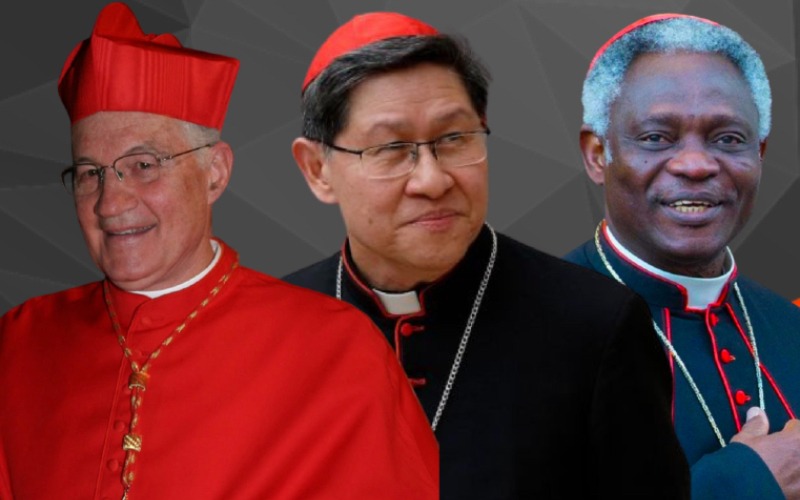



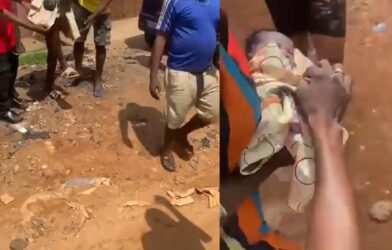
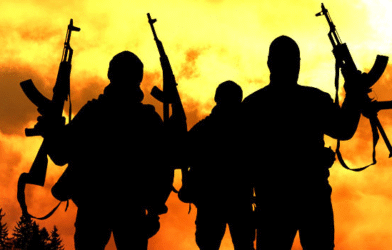
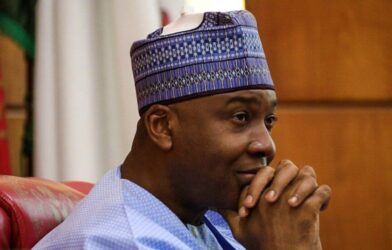

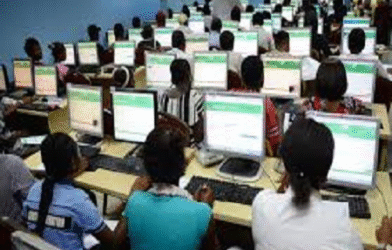
Comments are closed